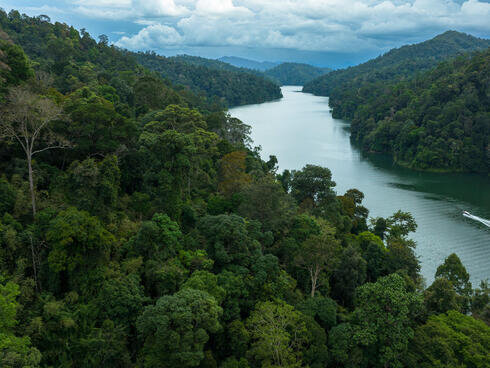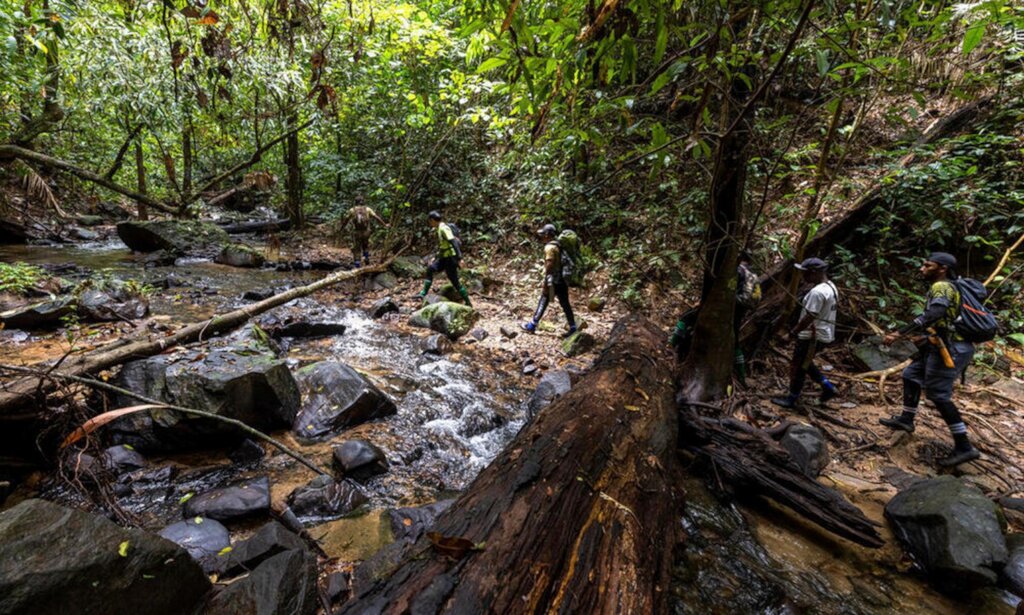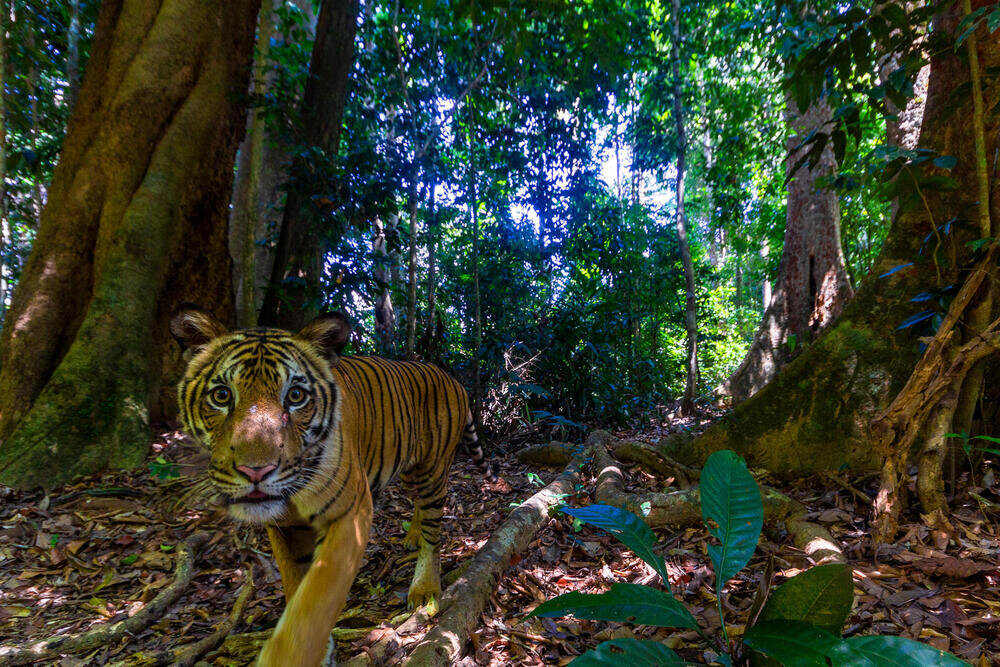By Jenna Bailey | Associate Program Officer
Project Stampede
One of the oldest rain forests in the world, Royal Belum State Park, sits on the northern border of the Peninsular Malaysia and is one of the country’s last strongholds of tigers. With such lush greenery, scientists were left wondering what was causing the decline of tiger populations that they were seeing across the region. In 2017, scientists began their investigation and found hundreds of poachers’ snares scattered throughout the forest. Snares are deadly traps made from wire, set by poaches in the hope of catching wildlife. In Malaysia, prized most of all for poachers is the tiger. The discovery of these snares was the push that WWF-Malaysia needed to partner with the government of Malaysia and local indigenous communities to form Project Stampede, with the goal of creating patrol teams that would be in charge of monitoring the forests, removing these snares, and protecting the parks tiger population.
Thriving Tigers, Thriving Forests
Tigers are an apex species, meaning that their presence is a great indicator of a healthy ecosystem that is home to a variety of other plants and animals. Local communities benefit from the food, freshwater, and economic opportunities that healthy ecosystems, such as the Royal Belum State Park, can provide. Unfortunately, poaching has caused tiger numbers to plummet across Malaysia in recent years and it is now estimated that only 150 tigers call Malaysia home, down from 3,000 in the 1950’s.
Over the last few years, Project Stampede has contributed to the hiring of 60 patrol team members, made up of indigenous peoples from communities in the area. Thanks to their dedicated anti-poaching efforts, these teams have been able to reduce the number of snares in the state park by 98%. Most recently, camera trap footage captured images of tiger cubs with their mother. This footage is a strong beacon of hope for the recovery of the tiger population in the park.
National Tiger Task Force
In addition to Project Stampede, in 2022 the Malaysian government established a National Tiger Task Force that would implement successful tiger conservation strategies used in India and Nepal across the region. This task force has led to the hiring of 1,500 people, including local indigenous community members, to patrol additional forests across the country. Hundreds of camera traps have been set up to monitor the status of wildlife and threats facing the landscape and track the progress of this work.
TX2
In 2010, 13 tiger range countries and international organizations established TX2, a global commitment to double the number of wild tigers by 2022. Thanks to TX2, global tiger numbers have grown to an estimated 5,574 in 2022 from an estimated 3,200 in 2010. Looking ahead, WWF will continue working with tiger range country governments, Indigenous peoples, local communities, and other NGO’s to stabilize tiger populations and distribution across their existing and historical range by 2034.
How You Can Help!
Thanks to supporters like you, WWF has been able to accelerate tiger monitoring, habitat protection, anti-poaching efforts, and policy change advocacy. The fight is not over! You can join us by supporting this project and sharing it with your family, friends, and colleagues. This helps to make a huge difference in our work and set an inspiring example that together, change is possible. Thank you!
Links:
Project reports on GlobalGiving are posted directly to globalgiving.org by Project Leaders as they are completed, generally every 3-4 months. To protect the integrity of these documents, GlobalGiving does not alter them; therefore you may find some language or formatting issues.
If you donate to this project or have donated to this project, you can receive an email when this project posts a report. You can also subscribe for reports without donating.
Support this important cause by creating a personalized fundraising page.
Start a Fundraiser

